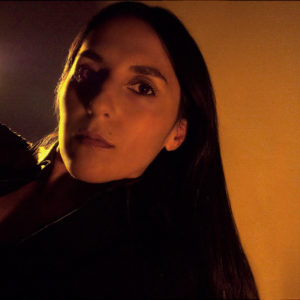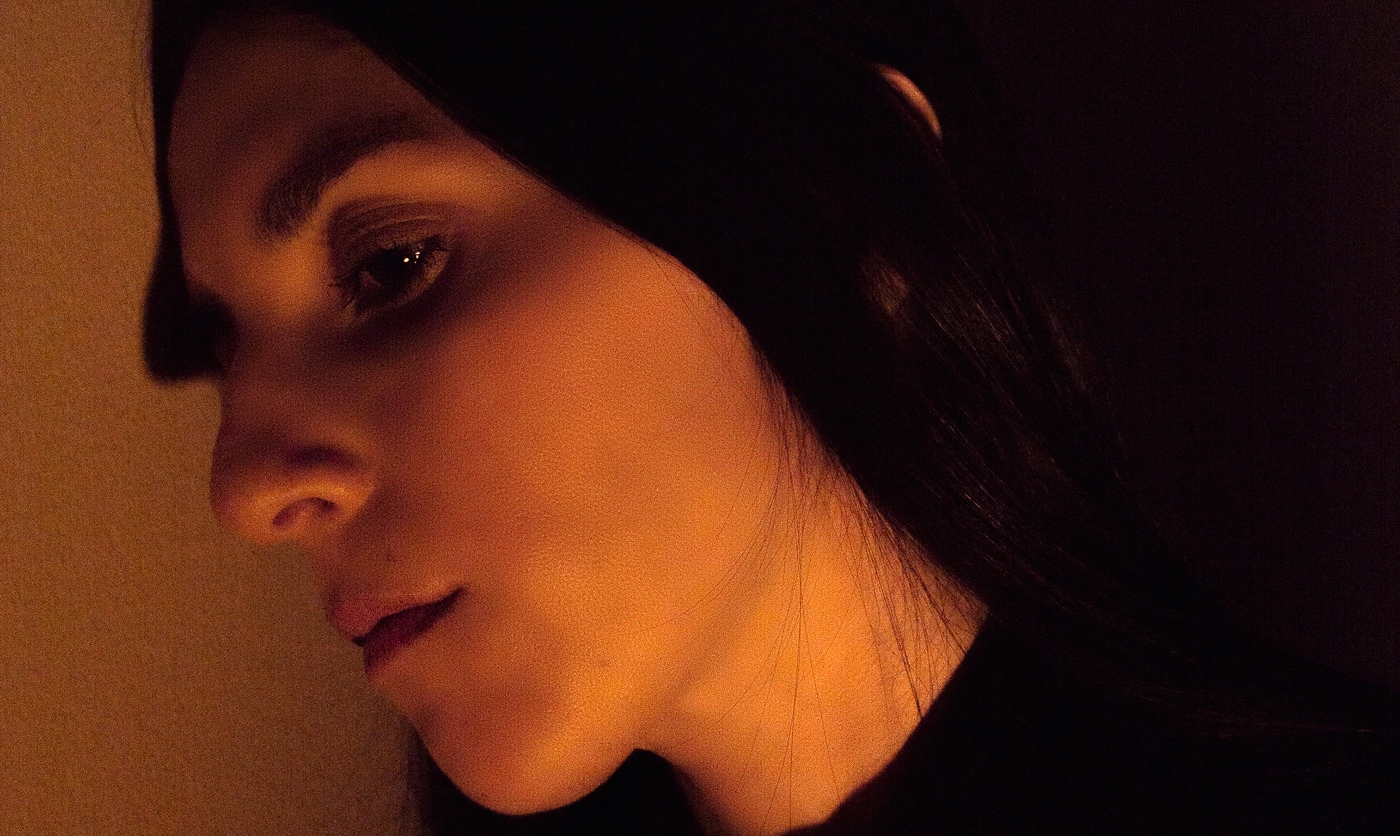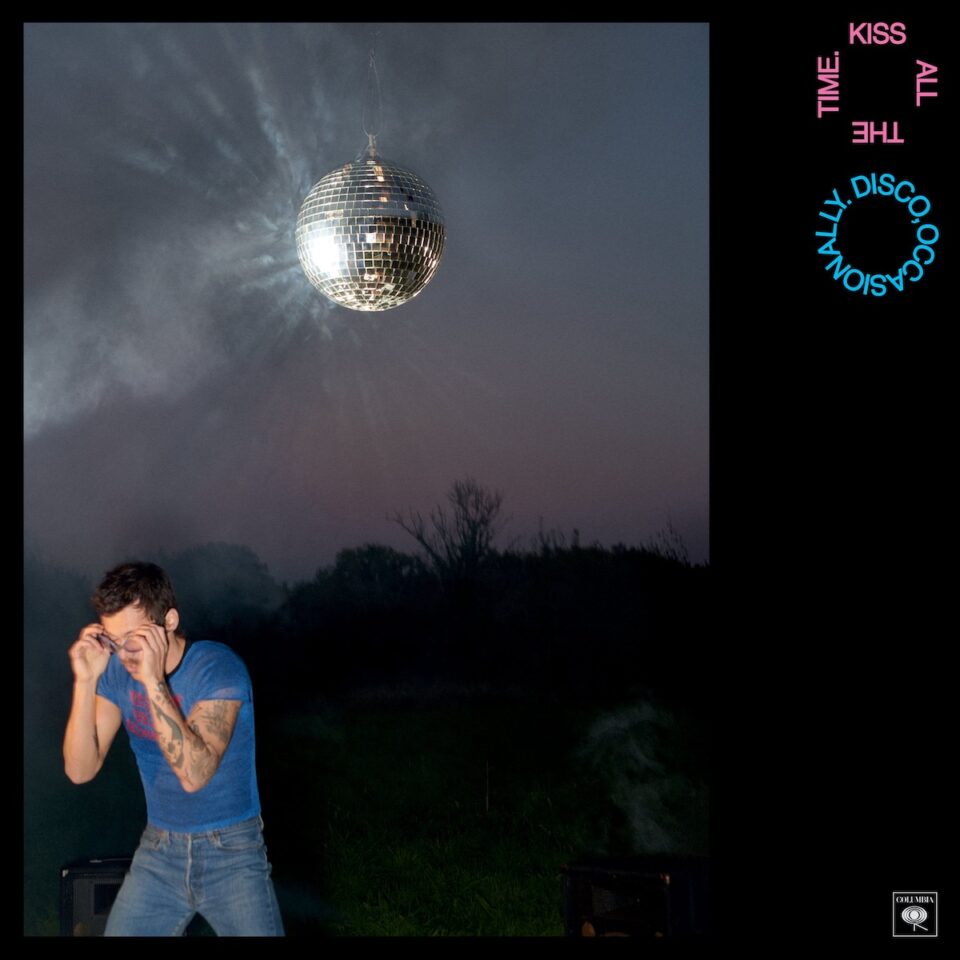Ramona Gonzalez hasn’t had it easy. In 2018, the Nite Jewel musician’s 12-year marriage and creative partnership came to a crushing end. In the aftermath, Gonzalez drifted from one friend’s couch to the next, unsure of what the future held. If that weren’t enough, the artist was simultaneously beginning her PhD in Musicology at UCLA. The timing was less than ideal.
Gonzalez used this rocky period as inspiration for her newest Nite Jewel album—a project known for its airy vocals and fizzy, electropop production. This era called for something radically different: Minimal instrumentation, wistful lyricism, and production that leaves plenty of room for silence are the essential components of Gonzalez’ latest work.
No Sun is the name of the new album—her fifth as Nite Jewel. The project is a moving account of her loneliness and heartbreak. Here, the trademark vocal reverb of previous Nite Jewel albums is gone. The listener is fully immersed in Gonzalez’ lonely world, every mournful verse perfectly discernible. We met up with Gonzalez at a cafe in LA’s Silver Lake neighborhood to discuss the album’s academic context, the ethos of Frank Ocean’s Blonde, and what her ex thinks of No Sun.
In your music research, you’ve studied women’s musical lament dating back to ancient Greece. You’ve considered the tradition of what it means “to be a professional mourner” or to be a woman hired as an emotional vessel for a male composer. How would you explain that historical context in regard to No Sun?
I didn’t write this music with the intention of it figuring into my research, I came to laments after I had recorded everything. But looking back, that research plays into what I did on the album. Which speaks to a couple things: One is that everything is informing each other all the time. It’s maybe just not cause-and-effect, necessarily. Also, the history of women singing sad songs is so long and so culturally ingrained that me or anybody making a sad song as a woman in a popular context would be, in my opinion, within that lineage. So I wouldn’t say that my research propelled the record, but I think that my record becomes a part of the research.
“It was a very lonely time and I wanted to express that in the music. I wanted the listener to feel that emptiness and space—like they’re falling.”
When you first start a PhD, you’re doing a massive amount of work and you’re not necessarily thinking of anything original right away. But I became obsessed with this topic, mainly through contemporary case studies of singers that I love and seeing them through the lens of laments. I’ve done a paper on Rosalía, I’m doing a paper on Sade now, I’ve done some research on Lana Del Rey. Basically I’m just choosing singers and songwriters I love, and it just so happens that those are laments or they can be traced down to these conventions and techniques. I didn’t get into laments at the start of the PhD program, but you could argue I was into them all along.
There’s a lot of silence and spaciousness on No Sun, which is a noticeable shift from much of your other music. What motivated that choice?
One simple thing is staying really true to the way the songs were initially recorded. I first recorded them on a Moog sequencer, not to a grid or anything, and improvised as the sequencer was rolling. A lot of the tracks are edited from those improvisations. In some cases I would improvise an entire song over the sequencer. I would try over and over until I got it right. There were mistakes and errors and times I was thinking for a bar or two before moving on. I think there’s a lot of power to sticking to that.
The other reason is that it was a very lonely time and I wanted to express that in the music. I wanted the listener to feel that emptiness and space—like they’re falling. Lastly, it was really important to me that I didn’t start the song with drums like most pop songs. Most pop songs have a beat and then you sing along to it. I just feel like that’s confining, and because of that some songs just don’t have drums.

The album feels very isolated, both sonically and lyrically. Was there ever a temptation to approach these songs from an angrier state?
I wasn’t angry, I was just feeling bitchy when I wrote “To Feel It” [laughs]. I was like, “Really? You’re done? OK…” Ultimately I was just talking to a wall. My ex wouldn’t talk to me. I was in a sort of desperate place, not angry. It was a very sad space. Anger is so superficial on some level. So even when I got a little spicy, the songs eventually retreated to feeling pretty dejected in the end, which is more honest. When you lose a love that was that deep, anger is just not the first thing that comes to mind. It’s too huge. It’s like being angry at war.
“Anger is so superficial on some level. So even when I got a little spicy, the songs eventually retreated to feeling pretty dejected in the end, which is more honest. When you lose a love that was that deep, anger is just not the first thing that comes to mind. It’s too huge. It’s like being angry at war.”
How does it feel having these very personal experiences be interpreted and, to some extent, owned by other people?
It’s weird! I’ve never been so personal with a record before. In the past, I felt like it would be cheap to do that. Looking back now, I realize I was just afraid to be personal. But I’m fine with people having those experiences of mine in their mind because ultimately, they’re so universal. I also think because of my study of laments, I can see it more intellectually and objectively. At this stage of the record, I can stand outside and look at it as a piece of art, just as audiences and critics can.
Do you feel any hesitation or intimidation about having to perform these songs that are so deeply personal to you?
It’s so funny because I didn’t at all at first. I was like, “OK, how am I going to do this live?” I was conceptualizing it in Ableton, working with my synths, thinking about the stage show. “Am I going to have a table in front of me? Will someone accompany me? How many people?” And then someone brought it up to me, like, “Do you think it’s going to be hard to perform these songs with the emotional content?” And I was like, “What? Oh, yeah.”
I don’t think it will be that hard for me. My ex and I have such a great relationship now. We’re friends. We are so bonded on a spiritual level. I know that sounds kind of LA, but it’s true. I feel nothing but happiness for what we shared. Things do have to come to an end and that’s OK. It was tough during that time, but I don’t know…I love the songs so much. I think it’s going to be fun [laughs]. It may be a little heavy for the audience, but it’ll be fun.
What does your ex think of the album?
He loves it. We have a deep musical bond. It’s always been extremely strong. On an artistic level, I think he’s impressed by the sound of the record and what it has to say. On an emotional level, it’s moving for him as well. I guess maybe because there’s no anger on it, that helps.
“Sometimes when you do something really out there and there’s nobody doing anything similar, you have to remember the greats who also did that because it makes you feel less crazy. I would go back and listen to Frank Ocean and think, ‘Phew, OK. I’m OK.’”
You do a cover of Sun Ra’s “When There Is No Sun” as the closing track. Are there any other artists that inspired you while putting the album together?
Blonde [by Frank Ocean] was a huge inspiration for this record. You might not even be able to hear it, and that’s totally fine. To me, it’s just one of the best pop records ever made. It’s just so free. The forms, the songwriting, the way it’s produced—there’s no rules. I was inspired by the ethos. Sometimes when you do something really out there and there’s nobody doing anything similar, you have to remember the greats who also did that because it makes you feel less crazy. I would go back and listen to Frank and think, “Phew, OK. I’m OK.”
LA has always felt like an intrinsic presence in your music. That was definitely apparent in your music video for “This Time.” Would you say LA plays a conscious role in No Sun?
Yeah, LA is always gonna be there. It’s where I first got my wings as Nite Jewel. LA is just so devilish. It’s the weirdest, darkest place ever. But it’s also the most sunny, happy, beautiful place. It’s just totally paradoxical, and that’s what I was trying to do with this record, too. I was reveling in the contradictions of every song. It’s funny, but I spent a lot of time touring while living here and I felt sort of unanchored a lot of the time. When I wrote No Sun, it was one of the first times I was just really, really in LA and feeling the loneliness of LA on a very intense level, especially without my partner. LA alone in a bachelor pad in Echo Park is an intense vibe, and that’s where I was. I was just becoming that sad Charles Bukowski character for a modern age. FL







